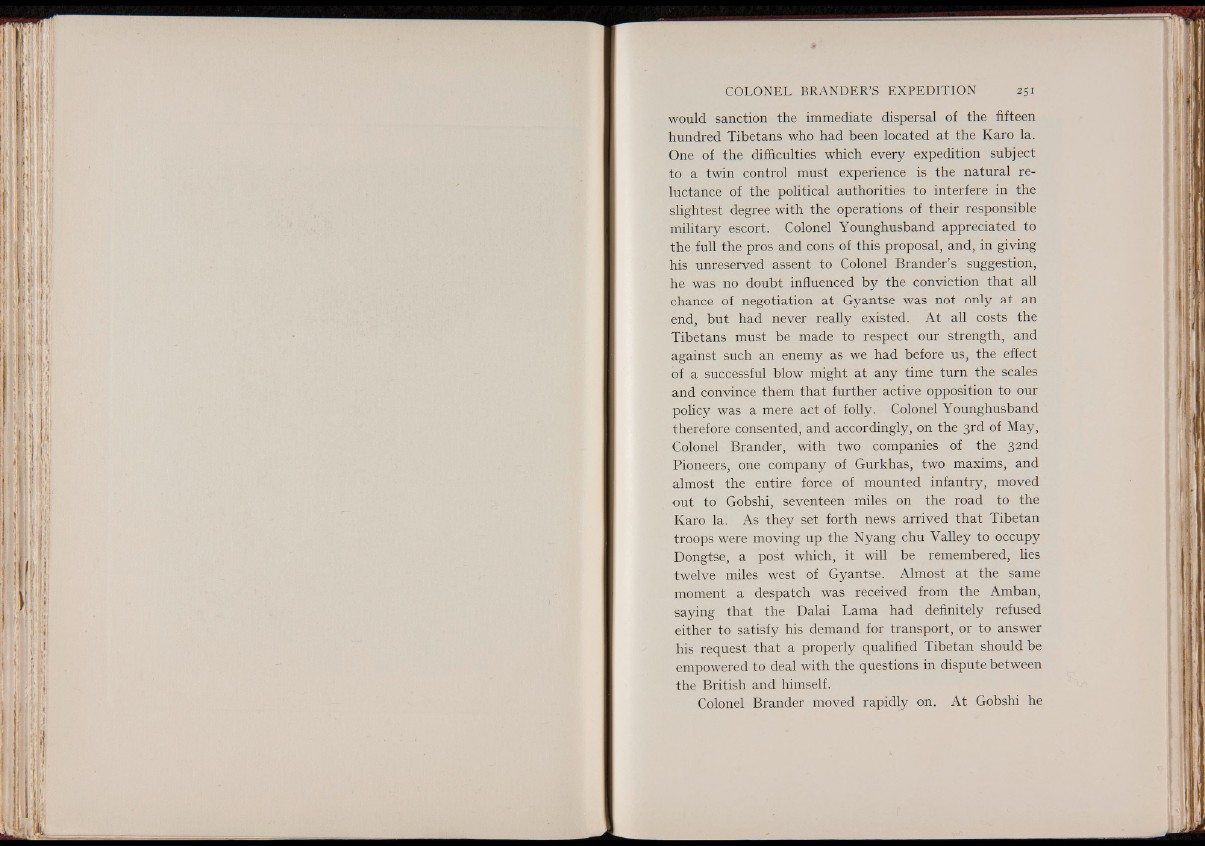
COLONEL BRANDER’S EXPEDITION 251
would sanction the immediate dispersal of the fifteen
hundred Tibetans who had been located at the Karo la.
One of the difficulties which every expedition subject
to a twin control must experience is the natural reluctance
of the political authorities to interfere in the
slightest degree with the operations of their responsible
m i l i t a r y escort. Colonel Younghusband appreciated to
the full the pros and cons of this proposal, and, in giving
his unreserved assent to Colonel Brander’s suggestion,
he was no doubt influenced by the conviction that all
chance of negotiation at Gyantse was not only at an
end, but had never really existed. At all costs the
Tibetans must be made to respect our strength, and
against such an enemy as we had before us, the effect
of a successful blow might at any time turn the scales
and convince them that further active opposition to our
policy was a mere act of folly. Colonel Younghusband
therefore consented, and accordingly, on the 3rd of May,
Colonel Brander, with two companies of the 32nd
Pioneers, one company of Gurkhas, two maxims, and
almost the entire force of mounted infantry, moved
out to Gobshi, seventeen miles on the road to the
Karo la. As they set forth news arrived that Tibetan
troops were moving up the Nyang chu Valley to occupy
Dongtse, a post which, it will be remembered, lies
twelve miles west of Gyantse. Almost at the same
moment a despatch was received from the Amban,
saying that the Dalai Lama had definitely refused
either to satisfy his demand for transport, or to answer
his request that a properly qualified Tibetan should be
empowered to deal with the questions in dispute between
the British and himself.
Colonel Brander moved rapidly on. At Gobshi he